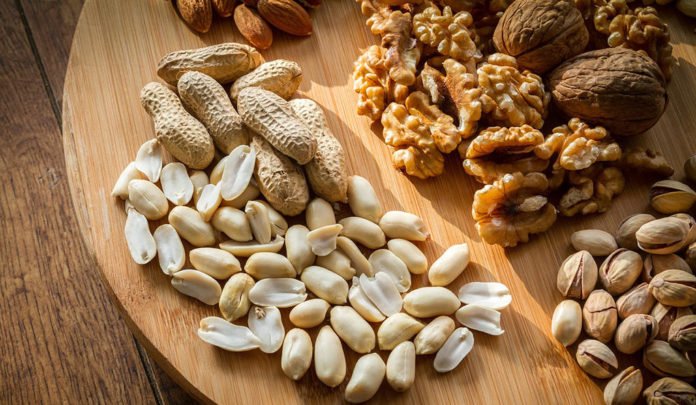According to a new study by Yale University, individuals with stage III colon cancer who have nut consumption regularly are at essentially bring down the danger of disease repeat and mortality than the individuals who don’t. Patients who regularly consume at least two one-ounce servings of nuts demonstrate a 42% improvement in disease-free survival and a 57% improvement in overall survival.
Charles S. Fuchs, M.D., director of Yale Cancer Center, said, “Further analysis of this cohort revealed that disease-free survival increased by 46% among the subgroup of nut consumers who ate tree nuts rather than peanuts. Tree nuts include almonds, walnuts, hazelnuts, cashews, and pecans, among others. In contrast, peanuts are actually in the legume family of foods.”
Temidayo Fadelu, M.D., a postdoctoral fellow at Dana-Farber Cancer Institute, said, “These findings are in keeping with several other observational studies that indicate that a slew of healthy behaviors — including increased physical activity, keeping a healthy weight, and lower intake of sugar and sweetened beverages — improve colon cancer outcomes. The results highlight the importance of emphasizing dietary and lifestyle factors in colon cancer survivorship.”
Furthermore, the analysts emphasized the investigation featured associations between biological mechanisms that intensify ailment not simply in colon cancer but rather in certain unending ailments, for example, type 2 diabetes.
Numerous past studies have announced that nuts, among other medical advantages, may lessen insulin protection, a condition in which the body experiences issues handling the insulin hormone. Insulin protection prompts unfortunate levels of sugar in the blood and is regularly a forerunner to type 2 diabetes and related ailments.
Fuchs said, “These studies support the hypothesis that behaviors that make you less insulin-resistant, including eating nuts, seem to improve outcomes in colon cancer. However, we don’t know yet what exactly about nuts is beneficial.”
Nuts also might play a positive role by satisfying hunger with less intake of carbohydrates or other foods associated with poor outcomes.
Patients may not be eating nuts due to concerns about the high-fat content, said Fuchs. For example, a one-ounce serving of about 24 almonds holds about 200 calories, including 14 grams of fat. People ask me if increasing nut consumption will lead to obesity, which leads to worse outcomes. But what’s really interesting is that in our studies, and across the scientific literature in general, regular consumers of nuts tend to be leaner.”
The findings were published today in the Journal of Clinical Oncology.
When Fuchs advises his patients about lifestyle choices, “First and foremost, I talk about avoiding obesity, exercising regularly, and staying away from a high-carbohydrate diet. Then we talk about things like coffee and nuts. If you like coffee or nuts, enjoy them, and if you don’t, there are many other helpful steps you can take.”
“Overall, we are working to apply the same rigorous science to the understanding of diet and lifestyles in the colon cancer patient population that we apply to defining new drugs.”
